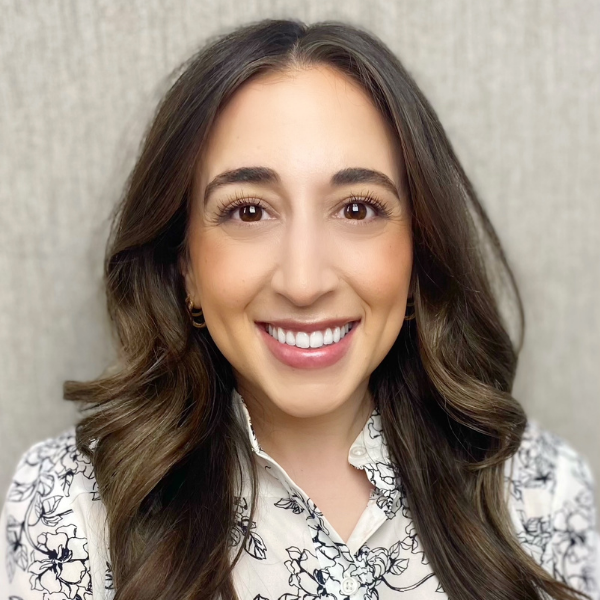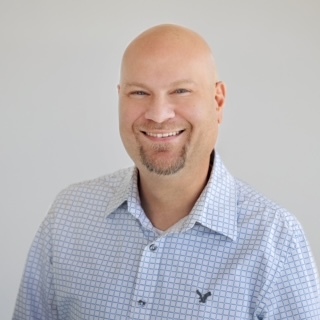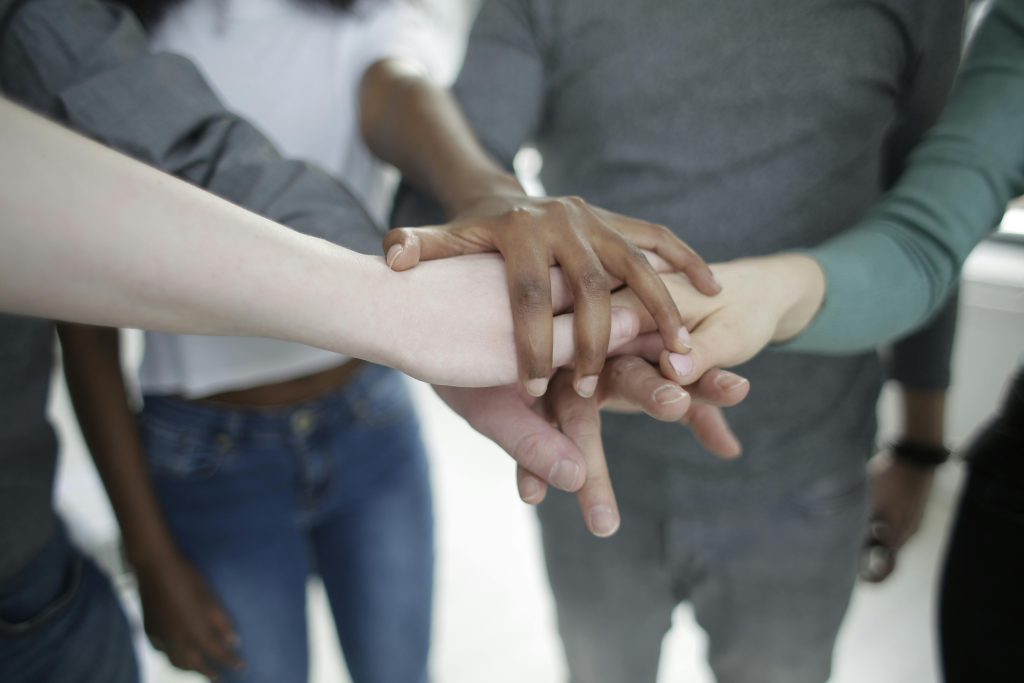
Taleen Yepremian
Health Equity Project Coordinator
“It was heartbreaking to see kids that can’t see a doctor or can’t see psychologists or any type of provider they need because they don’t have the insurance, they don’t have the access to care.”
Taleen Yepremian was at a crossroad in her academic journey. She had spent the last five years on the path to becoming a dentist when she realized she wanted a different career. Getting rejected from dental school was a blessing in disguise for her, as it gave her the opportunity to explore other career options in health care. She applied to—and got accepted to—a health administration master’s program at the University of Southern California. During her program she did her administrative residency at the Children’s Hospital of Los Angeles, where she witnessed firsthand the inequities in mental health care access for children and their families. She also honed her skills in project management in the healthcare space, which led her to her current role as Health Equity Project Coordinator at HealthBegins.
When did you first recognize the reality of health equity?
Growing up, my mother worked in the insurance field, so I always heard her talking about the different types of health insurance, but never took the time to fully understand it myself because she always took care of it for me. There were a few months during my teenage years where I saw several different doctors. She would always remind me, “we’re very lucky, you can see any doctor you want to see with your insurance.” During this time, I learned what a privilege it was to have access to quality healthcare, and more importantly, recognized the reality that I was indeed one of the lucky ones and access to quality healthcare was not attainable to too many people.
So how did you decide that you wanted to make health equity your work?
It was through my residency I did with Children’s Hospital of LA—The USC Center for Excellence in Developmental Disabilities (UCEDD). The department was funded through the department of mental health, and they provided behavioral and mental health services for children on Medi-cal or uninsured children throughout the greater Los Angeles county. When I started working for this department, I realized very quickly that they only had so much funding and the waitlist for services was hundreds of kids long and unfortunately they just did not have enough staffing support to be able to see these kids. And I realized there were kids on the wait list that were battling depression and kids who had previous suicide attempts trying to see a mental health practitioner or some type of practitioner or provider and they were waiting months to see someone.
It was heartbreaking to see kids that can’t see a doctor or can’t see psychologists or any type of provider they need because they don’t have the right insurance, they don’t have the access to the care they need. I think that was the first kind of indicator that I wanted to stay in this space of health equity and working towards making sure that people just have access to the care they need.
What advice would you offer others striving to advance health equity?
I used to think if you want to be involved in healthcare and advancing health equity, you need to be a doctor or a dentist or any type of provider. And what I’ve learned is that you can offer support to advance health equity in a lot of different ways. If you want to work in the health equity space, you don’t necessarily need to be the leader, but there are other ways; you can partner with different organizations in your free time, you can support these organizations, you can do supportive work. Like at HealthBegins, I think I support this work in a lot of different ways to make sure we help our partners reach their goals in advancing health equity.
Describe a problem that people involved in health care face (be they practitioners or patients) that you would like to solve.
I think the big picture problem is the access to quality healthcare.
Can you describe a little bit about what you do at HealthBegins and what kind of projects you work on?
I am a health equity project coordinator and I work primarily in our training and education service line. I’ve spent a lot of time supporting the development, roll out, and facilitation of our national learning collaboratives. I’ve helped support several different health systems in their learning collaborative journey and designing their Upstream Quality Improvement Campaigns which is a really special process to be a part of.
What do you find challenging about your work?
I think that there’s so much more to learn about health equity. I’ve been here a year and a half and I’ve learned so much, but there’s still so much more I want to learn.
What do you wish everyone else understood about health equity?
That it goes far beyond just the access to healthcare. I’ve learned a lot throughout my time at HealthBegins about the impact of systemic racism on healthcare, which is not something you’re always taught in school. A lot of my education before HealthBegins about health equity came from a curriculum in school that didn’t acknowledge the systemic inequities that largely impact health equity.
Tell us a little about the people who shaped your values.
I’m going to go with a classic answer, but I think it comes from family. I grew up with immigrant parents who came from tough upbringings. My mom came to America as a refugee from the Lebanese civil war and my father worked from a really young age to provide for his mother and siblings and to make sure they could move to America in hopes of a better life. So, I think from a young age I saw my parents work really hard to build a life they dreamed of and they always embraced the good and the bad times and taught me to do the same.
What brings you meaning in your life outside of your work?
My family and my community and the people around me. I spend a lot of time with my family and I’m very close to them. I spend a lot of time with my friends and my community and I think just fostering those relationships is what I guess brings me meaning.
What’s one thing you’re learning now. And why is it important?
I think, this year especially, I’ve been learning a lot about myself. It’s been a year of a lot of self-reflection for me—self-growth, understanding what my passions are, what my values are, and how I want to bring that to my day-to-day and my career.
What was your first job and what did you learn from it?
I was a babysitter and I learned that parents are incredible and taking care of other human beings is a full-time job and is very difficult. And it taught me about patience a lot.
What’s a fun fact about you that many people may not know?
I am good at tap dancing. I took tap dancing classes for maybe 16 years.
What are your favorite films, books, or podcasts?
My favorite books growing up that I read over and over again was Harry Potter. But in my adult life, when I need an uplifting kind of thing it’s The Alchemist.
Who inspires you?
My grandma, my mom’s mom because she was not the classic Armenian grandmother. We always say she’s a force to be reckoned with. She came to America and never let the answer no keep her from doing what she wanted to do. I think it’s because she’s so fearless that she inspires me. So when I kind of am more hesitant and reserved in day-to-day things or even in big decisions, I talk to her a lot and I get advice from her. The ability she has to not let fear stop her from doing the things that she wants to do has always inspired me.
When you were a kid, what did you want to be when you grew up?
I used to love writing books when I was a kid. And I would do little story books and I would do little drawings for them. So I always thought I’d be an author.
Looking 10 years into the future, describe what you hope to have achieved and how you hope the world will be different.
The big picture goal is making sure that in 10 years I’ve made an impact on people. Whether that be just the partners we serve and then, as a result of that, the patients and the community they serve or making some kind of positive impact on my colleagues.
Vsem Yenovkian is the Communications Manager at HealthBegins.
Featured Content
Aligning Our Organizational Structure with Our Values
With our new B Corp Certification, HealthBegins has now joined a global network of companies that see business as a force for good and can share tools and practices to help us improve.
5 Principles and Practices to Sustain Gender-Affirming Care in Uncertain Times
With the onslaught of federal threats to transgender and nonbinary people, health care has a critical role to play to uphold standards of care, ensure access to essential services, advocate for evidence-based medicine, and protect patients and providers.
Strengthening Health Equity Investments with Human-Centered Stakeholder Engagement
Understanding and aligning with what value means to your stakeholders—especially those who make investment decisions—is crucial when making the business case for health equity investments.




